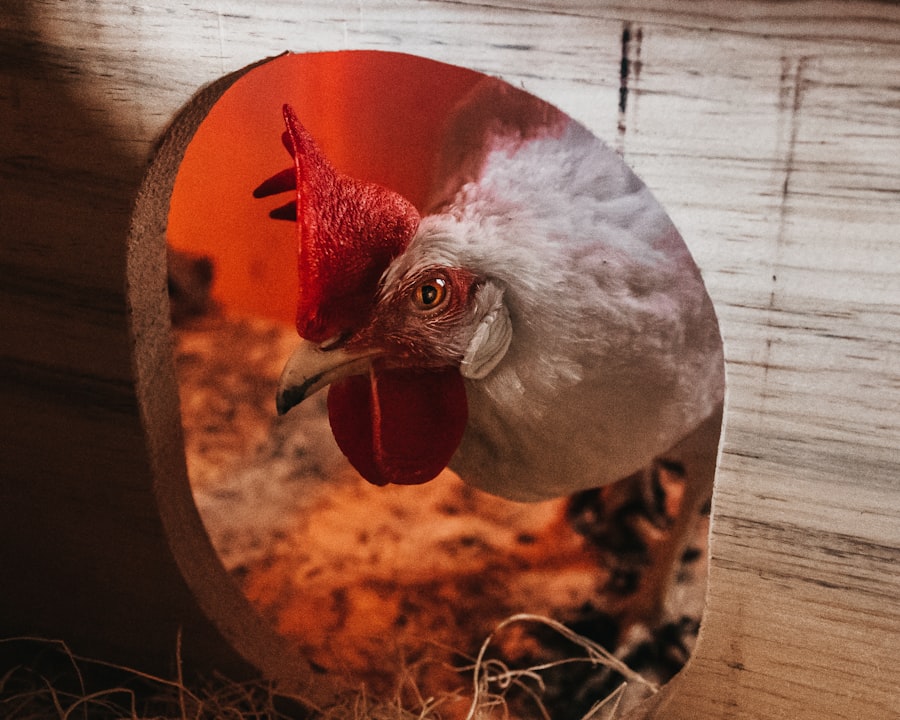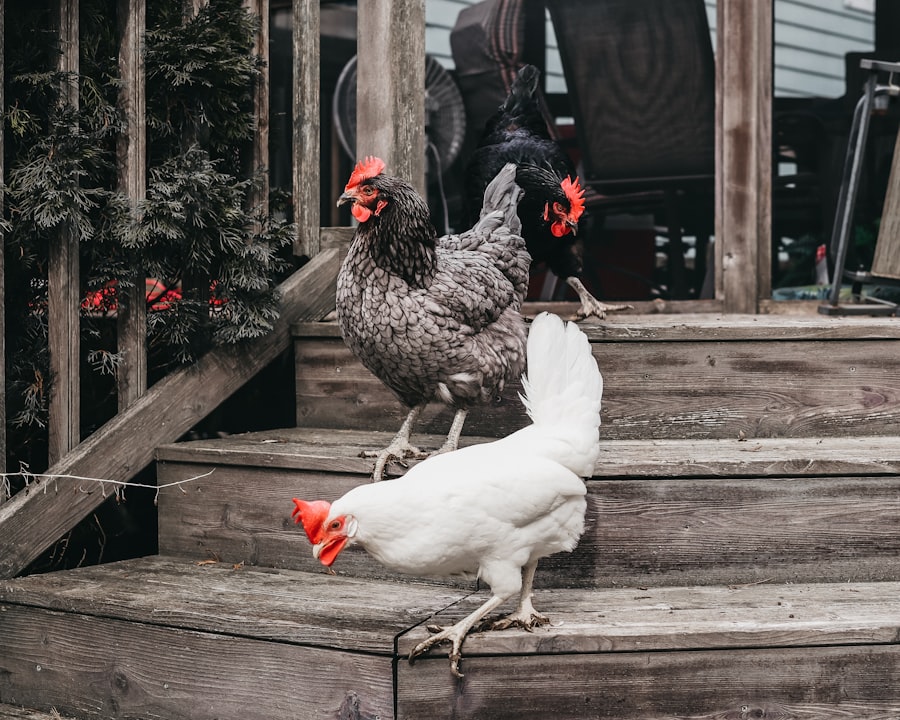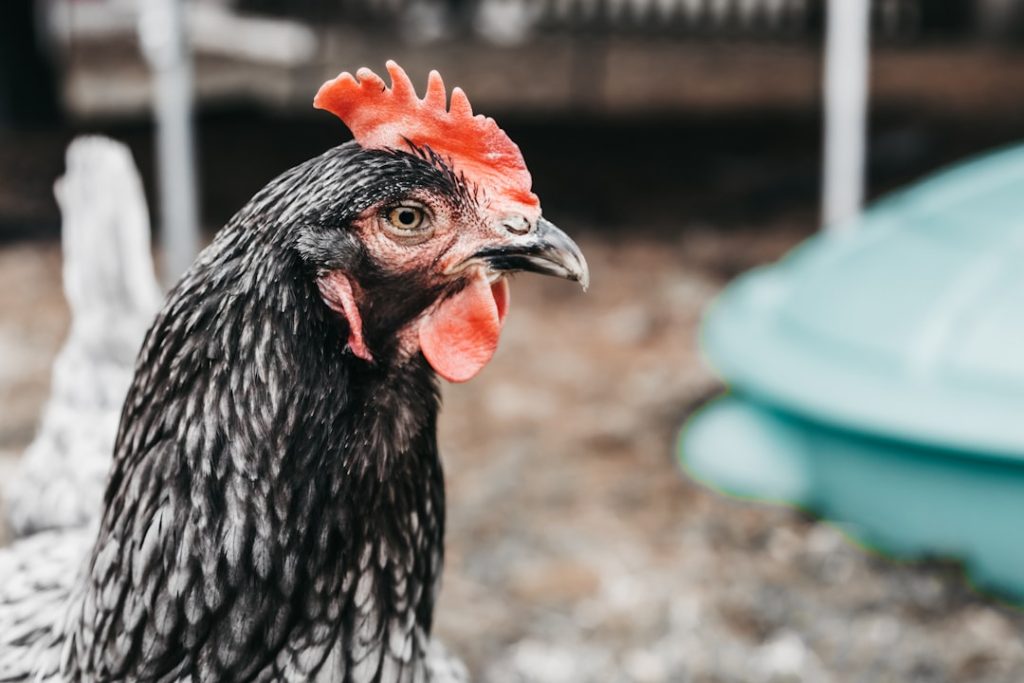Free range chickens exhibit natural behaviors and instincts that are essential to their well-being. These birds are inherently curious, active, and social, thriving in environments that allow them to roam and forage freely. Understanding their behavior is crucial for providing optimal care and living conditions.
Foraging is a primary activity for free range chickens. They spend considerable time pecking and scratching the ground in search of insects, seeds, and plants. Dust bathing is another important behavior, helping them maintain clean feathers and reduce parasites.
As social animals, free range chickens benefit from living in flocks, requiring space to establish their social hierarchy. Free range chickens are diurnal, being most active during daylight hours and seeking shelter at night. Recognizing these natural behaviors is key to creating an appropriate environment that allows them to express their instincts.
Providing adequate space, shelter, and foraging opportunities ensures the health and happiness of free range chickens. To support their well-being, caretakers should design living spaces that accommodate these natural behaviors, including open areas for foraging, dust bathing spots, and secure nighttime shelters. This approach allows free range chickens to lead lives that closely resemble their natural state, promoting both physical and psychological health.
Table of Contents
Key Takeaways
- Free range chickens exhibit natural behaviors such as foraging, dust bathing, and roosting.
- Adequate space and shelter are essential for free range chickens to thrive and feel secure.
- Proper fencing and enclosures are necessary to protect free range chickens from predators and to prevent them from wandering off.
- Feeding and watering practices should be consistent and provide a balanced diet for free range chickens.
- Establishing a routine and consistent care helps free range chickens feel secure and reduces stress.
Providing Adequate Space and Shelter
Space Requirements for Happy Chickens
When it comes to free range chickens, providing adequate space is essential for their well-being. As a general rule of thumb, you should provide at least 4 square feet of space per chicken in the coop and 10 square feet per chicken in the outdoor run. This will give them enough room to move around freely and establish their social hierarchy without feeling cramped or stressed.
Shelter Essentials for Free Range Chickens
In addition to space, providing proper shelter is crucial for the health and safety of free range chickens. The coop should be well-ventilated, predator-proof, and provide protection from the elements. It should also have roosting bars for the chickens to perch on at night, as well as nesting boxes for them to lay their eggs.
Creating a Safe Outdoor Environment
The outdoor run should be fenced in to protect the chickens from predators and provide them with a safe space to roam and forage. By providing adequate space and shelter, you can ensure that your free range chickens have a comfortable and secure environment to thrive in.
Implementing Proper Fencing and Enclosures

Proper fencing and enclosures are essential for keeping free range chickens safe and secure. When it comes to free range chickens, it’s important to have a secure perimeter fence to keep predators out and your chickens safe. The fence should be at least 6 feet high and buried at least 12 inches into the ground to prevent predators from digging underneath it.
Additionally, you should consider adding an apron of wire mesh around the perimeter of the fence to further deter predators from digging. In addition to a perimeter fence, it’s important to have a secure coop and outdoor run for your free range chickens. The coop should be predator-proof with sturdy walls, a secure roof, and hardware cloth over any windows or vents.
The outdoor run should also be enclosed with a roof or netting to protect the chickens from aerial predators. By implementing proper fencing and enclosures, you can create a safe and secure environment for your free range chickens to roam and forage without the threat of predators.
Feeding and Watering Practices
Feeding and watering practices are crucial for the health and well-being of free range chickens. Free range chickens are natural foragers, so it’s important to provide them with access to a variety of foods to mimic their natural diet. This can include commercial chicken feed, as well as kitchen scraps, fruits, vegetables, and grains.
Additionally, free range chickens should have access to grit, which helps them digest their food, as well as calcium supplements to support egg production. In addition to feeding, providing clean and fresh water is essential for free range chickens. Chickens need access to clean water at all times to stay hydrated and healthy.
It’s important to regularly clean and refill their waterers to prevent the growth of bacteria and algae. By implementing proper feeding and watering practices, you can ensure that your free range chickens have a balanced diet and access to clean water for optimal health and well-being.
Establishing a Routine and Consistent Care
Establishing a routine and consistent care is essential for the well-being of free range chickens. Chickens thrive on routine, so it’s important to establish a consistent schedule for feeding, watering, cleaning, and egg collection. This will help reduce stress and anxiety in the flock, as well as make it easier for you to monitor their health and behavior.
Additionally, consistent care includes regular health checks and preventative measures such as parasite control and vaccinations. By establishing a routine and consistent care plan, you can ensure that your free range chickens receive the attention and care they need to thrive.
Monitoring and Addressing Potential Stressors

Identifying Potential Stressors
This can include overcrowding, predator threats, changes in routine or diet, extreme weather conditions, or illness within the flock.
Taking Proactive Measures
By monitoring their behavior and environment, you can identify potential stressors early on and take steps to address them. This can include providing additional space, adjusting their diet, reinforcing fencing or enclosures, or seeking veterinary care if necessary.
Ensuring Healthy and Happy Chickens
By addressing potential stressors proactively, you can help ensure that your free range chickens remain healthy and happy.
Training and socializing your free range chickens is an important aspect of their care. Chickens are intelligent animals that can be trained to respond to cues and commands, making it easier to manage them in a free range environment. Training can include teaching them to come when called, using positive reinforcement to encourage desired behaviors, or desensitizing them to handling for health checks or veterinary care.
Socializing your free range chickens is also important for their well-being. Chickens are social animals that thrive in a flock environment, so it’s important to provide them with opportunities for social interaction. This can include introducing new birds gradually, providing plenty of space for them to establish a pecking order, and observing their interactions to ensure they are getting along.
By training and socializing your free range chickens, you can create a harmonious environment where they feel comfortable, secure, and well-cared for. This will not only benefit their well-being but also make it easier for you to manage them in a free range setting.
If you’re looking for more information on keeping chickens, you might be interested in learning about the incubation period for goose eggs. Check out this article on what is the incubation period for goose eggs to expand your knowledge on poultry breeding.
FAQs
What are free range chickens?
Free range chickens are poultry that are allowed to roam freely outdoors, rather than being confined to a cage or enclosure. They have access to natural sunlight, fresh air, and a variety of plants and insects for foraging.
Why do free range chickens run away?
Free range chickens may run away due to natural instincts to explore and forage, or in response to perceived threats or disturbances. They may also be seeking better food sources or more comfortable living conditions.
How can you keep free range chickens from running away?
To keep free range chickens from running away, it is important to provide a secure and comfortable coop or shelter for them to return to at night. Additionally, regular feeding, providing access to clean water, and ensuring a safe and predator-proof environment can help prevent chickens from running away.
What are some methods for keeping free range chickens contained?
Some methods for keeping free range chickens contained include using fencing or netting to create a designated area for them to roam, using chicken-friendly landscaping to create natural barriers, and providing enticing food and water sources within their designated area.
Are there any legal considerations for keeping free range chickens from running away?
In some areas, there may be local ordinances or regulations regarding the keeping of free range chickens, including requirements for fencing or containment. It is important to be aware of and comply with any relevant laws or regulations when keeping free range chickens.
Meet Walter, the feathered-friend fanatic of Florida! Nestled in the sunshine state, Walter struts through life with his feathered companions, clucking his way to happiness. With a coop that’s fancier than a five-star hotel, he’s the Don Juan of the chicken world. When he’s not teaching his hens to do the cha-cha, you’ll find him in a heated debate with his prized rooster, Sir Clucks-a-Lot. Walter’s poultry passion is no yolk; he’s the sunny-side-up guy you never knew you needed in your flock of friends!







